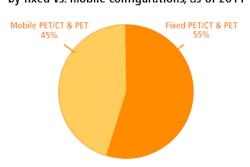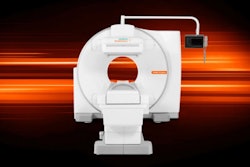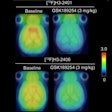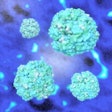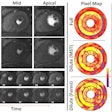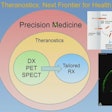Tuesday, November 29 | 10:50 a.m.-11:00 a.m. | SSG12-03 | Room S505AB
In a comparison with F-18 DOPA-PET/CT, gallium-68 (Ga-68) DOTA-NOC achieved "superior sensitivity" with neuroendocrine tumors, prompting researchers to conclude that Ga-68 DOTA-NOC could help direct more effective patient treatment.Ga-68 DOTA-NOC is a PET/CT agent that binds to the somatostatin receptor, which expresses neuroendocrine tumors, according to presenter Dr. Abhishek Kumar, a resident physician at All India Institute of Medical Sciences in New Delhi. "Since FDG-PET very often does not show uptake in neuroendocrine tumors, this new agent seems to be very promising," he added.
The study prospectively enrolled 53 patients, 28 of whom had confirmed carcinoid disease. In addition, 17 patients had known medullary thyroid carcinoma, and eight were evaluated for pheochromocytoma.
The carcinoid subgroup of 28 patients was evaluated for staging/restaging, detection of recurrence, and response to therapy. Among the 17 patients in the medullary thyroid carcinoma subgroup, 14 were postoperative and were evaluated for restaging or response.
Of the remaining three patients, two were evaluated for an inoperable neck mass and one for a retrosternal mass. The third subgroup of eight patients was suspicious for pheochromocytoma based on clinical and biochemical findings.
In the subgroup of carcinoid patients, Ga-68 DOTA-NOC achieved sensitivity of 96%, compared with F-18 DOPA's sensitivity of 71%. In the subgroup of medullary thyroid carcinoma patients, Ga-68 DOTA-NOC showed a sensitivity of 100%, compared with F-18 DOPA at 86%.
Ga-68 DOTA-NOC identified more metastatic liver, lymph node, and bone lesions in patients with carcinoids as well as medullary thyroid carcinoma. In the pheochromocytoma subgroup, all patients were positive on both of the studies.
The clinical benefit of Ga-68 DOTA-NOC PET/CT is "more accurate staging of tumors," Kumar said. "Demonstrating somatostatin receptor positivity may also prove to be beneficial in choosing the patient for targeted radionuclide therapy."





